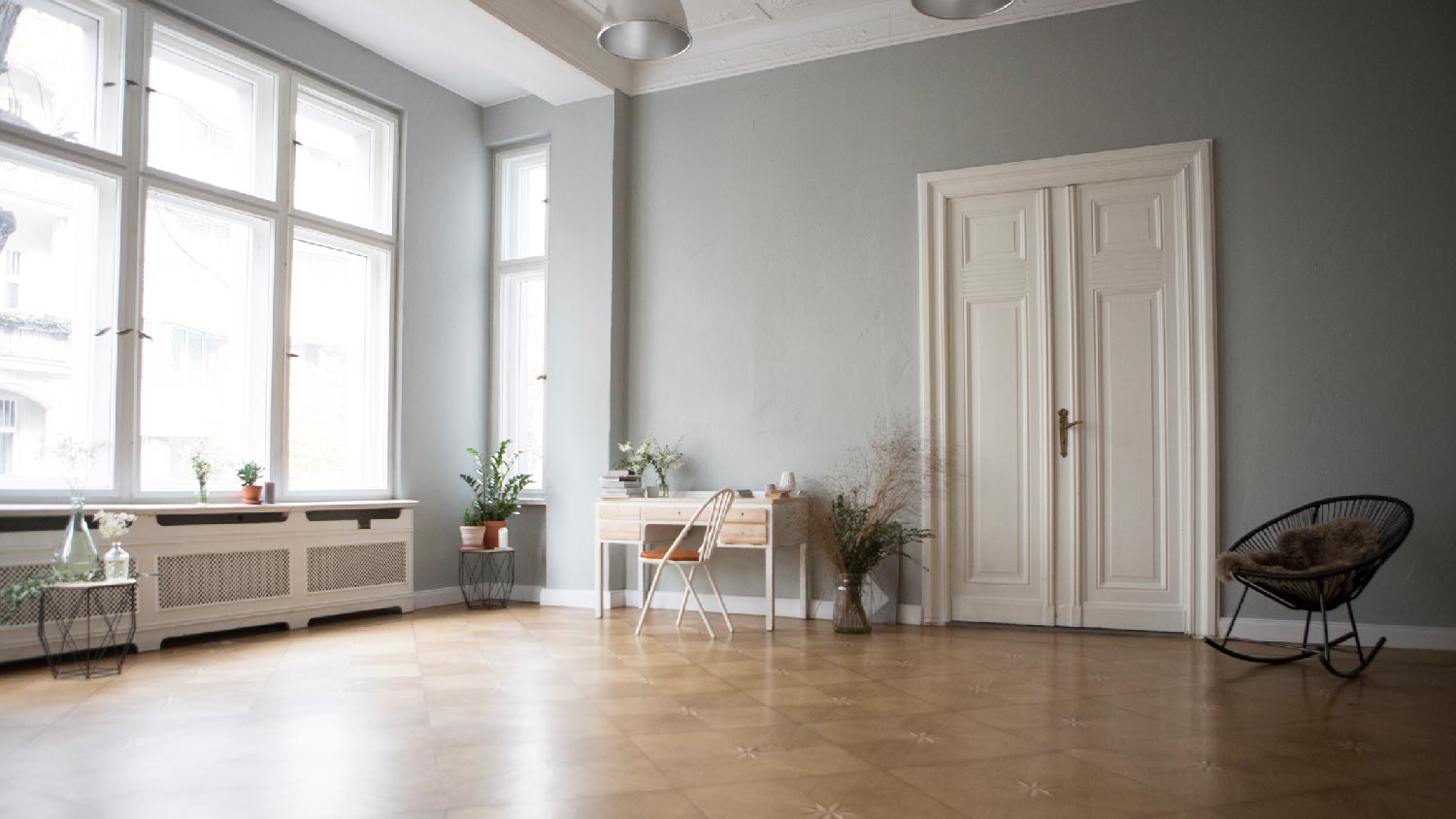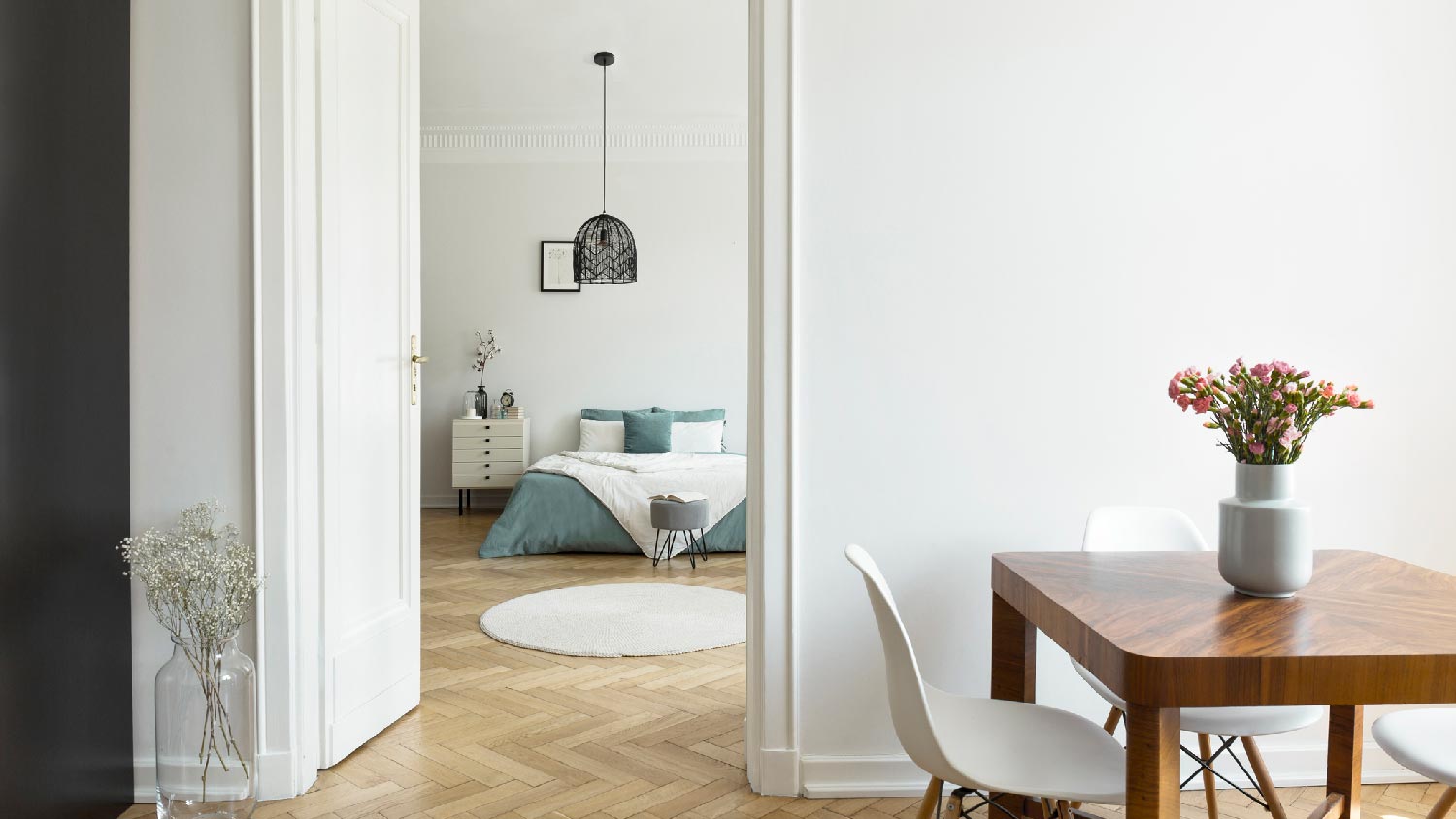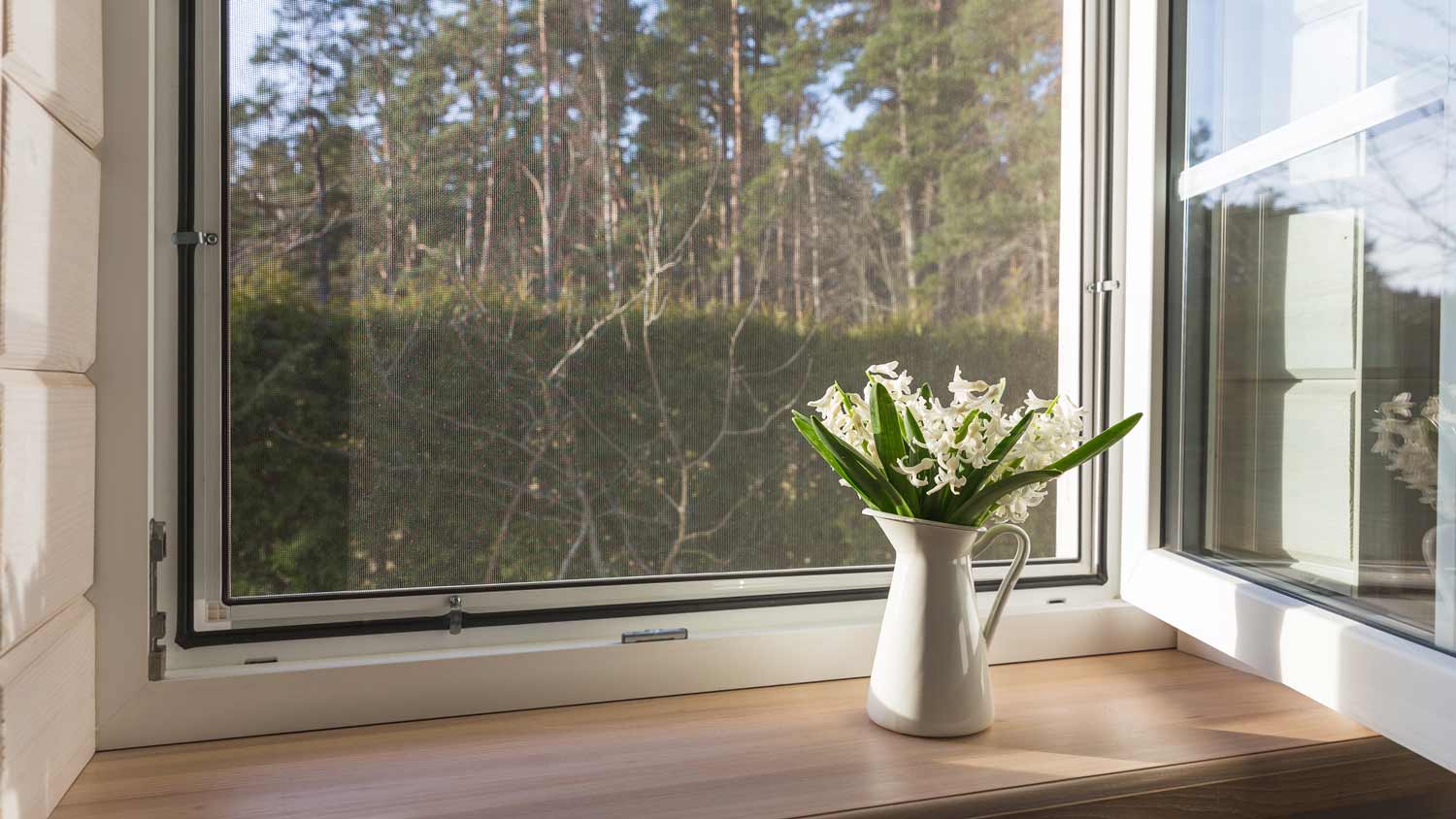How to Compare a Solid Core vs. Hollow Core Door
Do yourself a solid and get to know when to use each type of door


Solid core doors are more soundproof, well-insulated, and secure.
You can save money by installing a hollow core door yourself.
Neither solid core nor hollow core doors are as strong as solid wood doors.
Who knew that buying a new door would uncover such a heated debate? The solid core vs. hollow core door battle is a complicated one, as each option has its ups and downs. After all, the cost of installing a new door is a huge factor in your decision, and you'll find quite a gap between the two styles. Let's explore if and when a hollow core vs. a solid core door is right for your home.
Solid Core vs Hollow Core Doors: Key Differences
A solid core door is often composed of wood veneer and an engineered wood composite center. Hollow core doors, however, feature a honeycomb pattern of paperboard or plastic surrounded by a thin wood shell. Neither of these should be confused with solid wood doors—the other very popular type of door—which is totally composed of natural wood in a series of slab and framing pieces.
What is a Solid Core Door?

A solid core door is the happy middle ground between a solid wood and a hollow core door. The design uses some of today's strongest and most cost-effective materials such as MDF, or medium density fiberboard. For example, a solid core door may include a center of MDF surrounded by a decorative wood veneer. The shift from solid wood to solid core has its perks. Solid core doors hold up better against temperature and humidity changes, and do not cost nearly as much to make as solid wood doors.
| Pros | Cons |
|---|---|
| Cost less than solid wood doors | Cost more than a hollow core door |
| Strong soundproofing | Very heavy to install |
| Good insulation | Lower quality than a solid wood door |
| Rarely expand or warp | Tricky to repair |
| Fireproof rated | |
| Strong security |
Best for: Exterior doors and soundproof interior doors
Pros of Solid Core Doors
The top benefit of a solid core door is its strength. Not only will it last longer and be less prone to damage, but it will increase the room's security as well. Solid core doors offer better soundproofing and insulation, making this a great pick for bedrooms and the door between your porch and the foyer. Also, unlike solid wood doors, solid core doors are less likely to warp when the weather changes.
Cons of Solid Core Doors
While you'll save money on a solid core door vs a solid wood door, you'll still spend far more than the hollow design. Solid core interior doors cost between $70 and $500 whereas hollow core doors cost as low as $30 to $400–and they're DIY-friendly. Since solid core doors are so heavy—often even heavier than solid wood—you'll almost always need to hire a local door installation team to help get it on its hinges.
Solid core doors can also be hard to repair due to the multiple layers of varying materials. And in the end, they will never quite have the look of a solid wood design.
What is a Hollow Core Door?

| Pros | Cons |
|---|---|
| Lowest door cost option | Not rated for fireproofing |
| Easy to install on your own | Easily damaged |
| Easy to paint and finish | Minimal soundproofing |
| Doesn't warp or expand | Low insulation |
| Minimal security |
Best for: Interior doors on low-cost projects
Pros of Hollow Core Doors
Before you sign on for a solid core door, consider that hollow core doors have many upsides as well. Opt for a solid core door if you want to install it yourself without calling a professional. Hollow core doors are ideal for DIY pocket doors, closets, and pantries, for example. Similar to solid core doors, they will not warp in the heat and humidity, and come painty-ready.
Cons of Hollow Core Doors
On the other hand, designers don't often recommend hollow core doors for rooms that require weather and soundproofing. The thin interior allows sound and cool breezes to sail right through. Additionally, hollow core doors will rarely pass fire-rating requirements if you need to meet building codes for your particular entryway. Hollow core doors also offer less security since they are thin and easy to manipulate.
Solid Core vs. Hollow Core Doors

If lined up side by side, how does each type fair in the solid core vs. hollow core fight? Let's break things down further.

| Appearance | ✓ | |
| Price | ✓ | |
| Durability | ✓ | |
| Soundproofing | ✓ | |
| Insulation | ✓ | |
| Resale Value | ✓ | |
| Ease of Installation | ✓ |
Appearance
Solid and hollow core doors look similar at first glance. However, there's no question that solid core doors have a more stable and high-quality appearance. They will also feel different when handled, beating out the hollow door competition pretty easily.
Winner: Solid core doors
Price
As we touched on above, hollow core doors can cost less than half of solid core doors. Additionally, you can often install hollow core doors yourself, saving between $40 and $90 an hour on labor alone.
Winner: Hollow core doors
Durability
A solid core or solid wood exterior door lasts 40 years or more. The hardware is more likely to go before you need to replace the door slab itself. Hollow core doors, however, are not as structurally sound, and can dent or break down in fewer than 30 years.
Winner: Solid core doors
Soundproofing
The density of the interior of a solid core door is dense enough to block out much more sound than a hollow core door. Exterior, bedroom, and office doors will all benefit from something stronger than a hollow door. That being said, you could consider soundproofing a hollow core door to save money.
Winner: Solid core doors
Insulation
Knowing the R-value of your door can save you money on utility bills. Solid core doors have a higher R-value than hollow core doors. This is just one of the reasons that hollow core doors are not a good match for exterior entryways.
Winner: Solid core doors
Resale Value
Unsurprisingly, solid core doors have a higher resale value than most hollow core doors. They make a room look, sound, and feel better—and for a longer period of time. If you're considering selling your home, consider the higher return on your investment by opting for a solid core door.
Winner Solid core door
High-quality doors can increase your home's resale value. If you plan to sell your home in the near future, a premium door material like solid wood or steel can make a positive impression on potential buyers.
Ease of Installation
Even if you're particularly strong, installing a heavy door on your own is far more difficult than a lightweight door. A professional can ensure that a heavy door sits properly on its hinges. A hollow core door can be ordered as a pre-hung door that’s already set on its frame, and is easier to hang on your own.
Winner: Hollow core doors





- What Is Core Aeration? Is It the Right Method for Your Lawn?
- 23 Types of Doors for Inside and Outside Your Home
- Should You Buy a Spike or Core Aerator—or Neither?
- Fiberglass vs. Wood Door: Which Is Best for Your Home?
- 8 Tips for Stylishly Updating Interior Doors
- How to Improve Front Door Security: Full Guide
- Fiberglass vs. Steel Doors: What's the Difference?
- Open Up the Possibilities: 5 Must-Know Tips for Choosing the Perfect Front Door
- 10 Unique Ideas for Interior Door Designs
- How Long Do Front Doors Last?











